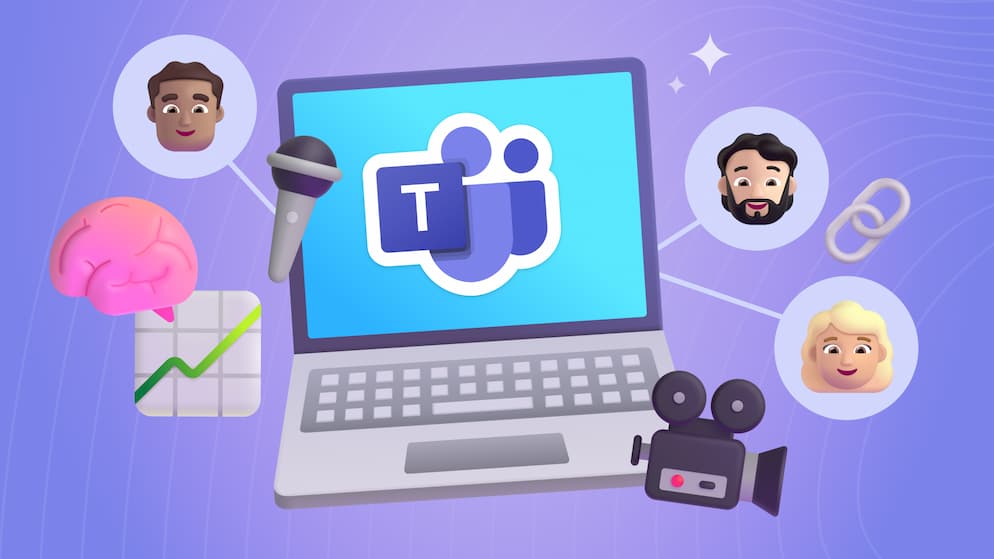Should You Hire In-House for O365?
Should you be building a team internally? Or hire a consultant? Well, it depends on where you're at as an organization.
What Does it Mean to Hire In-House for O365?
If you are reading this article, you are probably at some stage of working with O365 and have decided you need someone with more experience to help use O365. Beyond this, the reasons you may be looking into hiring someone could vary greatly.
- We know we want to roll out X tool in O365 but we don’t have anyone who knows how to do that.
- Our support desk keeps getting questions on X tool and we need someone who can answer those questions.
- We want to build a new team to support O365 within our IT team.
- Someone asked to build an app using the Power Platform but we don’t do that.
To help sort things out, we are going to look at this topic from two different perspectives that will hopefully give you some clarity about how your organization should proceed.
- Does your organization have a strategy for leveraging O365?
- Where are you in adopting O365?
While discussing these, I am going to focus on the basic question (hire or not) and what types of people you should be looking to hire.
Does Your Organization Have a Strategy for Leveraging O365?
Having a strong strategy is critical to enable anyone you might hire to be successful. Even if your organization doesn’t currently use O365 you should be able to answer the following questions.
- What business objectives do you expect O365 to support?
- What O365 tools do you expect to adopt in the next 24 months?
- Who owns ensuring the adoption of new tools and processes?
- How do you intend to support the adoption of new tools and processes?
If You Don't Have Answers
If your organization can not answer these questions, you probably aren’t ready to hire someone in-house to support O365. Instead, you should focus on answering these questions. Often, it helps to engage an outside expert to help discover the answers to these questions.
If You're Looking to Hire the Owner So They Can Get the Answers
You might think the person you need to hire would be the person who “owns ensuring the business adopts new tools and processes”. This is possible. More likely, you should find an existing leader in your organization who could take this on. This is because the position has more to do with understanding your business and being able to affect change in your organization. If you do hire for this position you will be looking for a senior IT leader who can learn your business and can match technology with your business needs.
If You Have Answers
If you have good answers for these then you are ready to assemble your team. This may mean hiring someone, it could also mean training someone already on your team or getting external help. To decide on your next steps, we need to look at this from another perspective.

SELF ASSESSMENT
Is your business getting full value from your M365 subscription?
Billions of dollars are wasted each year on underused subscriptions. Take 3 minutes to find out where your tools are driving results, and where they’re holding you back.
Find Out Now

Is Team Communication Holding You Back?
Find Out in Just 2 Minutes.
Take our quick scorecard to uncover communication gaps and hidden barriers within your team.
Where Are You in Your Journey of Adopting O365?
Think about how your organization is currently using O365 and take a look at the corresponding section.
- You want to use O365 but you don’t even have licenses.
- You started using O365 for email/meetings/chat and now you want to start leveraging all the tools in your organization.
- You are already deploying O365 throughout your business and you are having issues implementing a specific technology.
If You Want to Use O365, But You Don't Have Licenses
If your organization is in this stage, you may have some familiarity with O365. Some users within your organization may have even used some of the tools, but your organization hasn’t yet started to implement/migrate to O365.
At this stage you should be focused on the following key resources:
O365 Solution Architect – This is a person who is an expert in many aspects of O365 and can work with business owners to design solutions and work with technical teams to implement these solutions.
Change Manager – Implementing O365 in an organization will likely be transformative to your business. This person will help manage the people side of this change and will be the counterpart to the O365 Solution Architect.
You don’t have to have someone that has these exact titles. The important thing is you have someone who will play these roles. In addition, you may not need these roles in the long term. For most small to medium size organizations, these roles only exist while you are rolling out O365 to deliver on your business goals. After this, these organizations need to focus on the team to maintain and continue your journey. Look at the section for “you already have O365 and are looking to continue your journey” for more details.
Once you have identified these roles you will need to start filling in the following roles for each O365 technology you are looking to implement:
Technical Specialist – This person has a deep technical understanding of 365 tools, including implementing solutions on those technologies.
Support Specialist – This person could be the same as the Technical Specialist, but often is not. This person is familiar with O365 tools and is focused on adoption and supporting end users.
Champion – A champion is a business user who has a vested interest in O365 tools and how they are used within your organization. These users will be involved in the design of O365 solutions. They also will be able to help end-users understand what these solutions mean to them.
If You Started Using O365, But Want To Leverage All of the Tools
This stage isn’t too much different than the previous. You need to identify a strong O365 Solution Architect and Change Manager. The main difference is you already have some sort of experience/infrastructure supporting O365.
If You're Having Issues Implementing a Specific Technology
At this stage the issues you are having are likely caused by one of these:
- The solution you designed isn’t quite working as expected.
- Once you deliver your solution to your users they struggle with adoption.
My suggestion would be to seek the help of an O365 Solution Architect, Technical Specialist, or Change Manager to identify the best course of action. It is possible that you don’t really need to hire someone, you just need to take some steps to adjust your strategy.
What If I Don’t Want to Hire a Full-Time Employee for One of These Roles?
There can be several reasons you might not want to hire someone for one of the roles I discussed.
- There isn’t enough work to keep them busy
- Someone with those skills is cost-prohibitive.
- We aren’t sure we will really use that tool.
The good news is that many of the positions I discussed don’t need to be your employees. Some great examples are O365 Solution Architect, Technical Specialist, and Change Manager. In these cases, there are several organizations that can support you in varying ways.
What about the: Support Specialist, and Champion? It is possible to hire an outside vendor for the Support Specialist role, but I often suggest that customers work hard to build that knowledge in-house. You should NEVER hire an outside resource to be a champion. By definition, that role is someone who already is in your organization and knows your business.

.avif)





.jpg)







